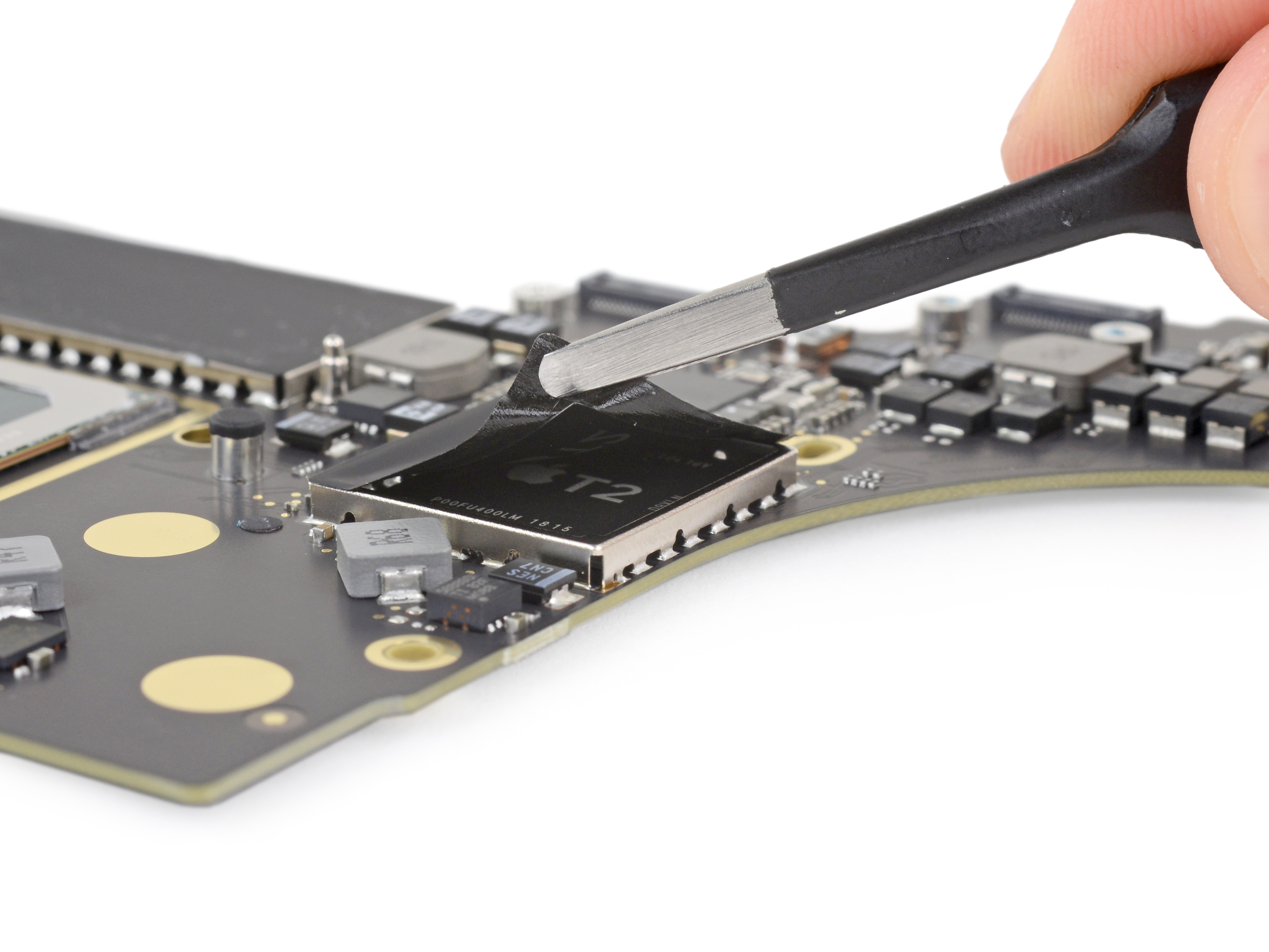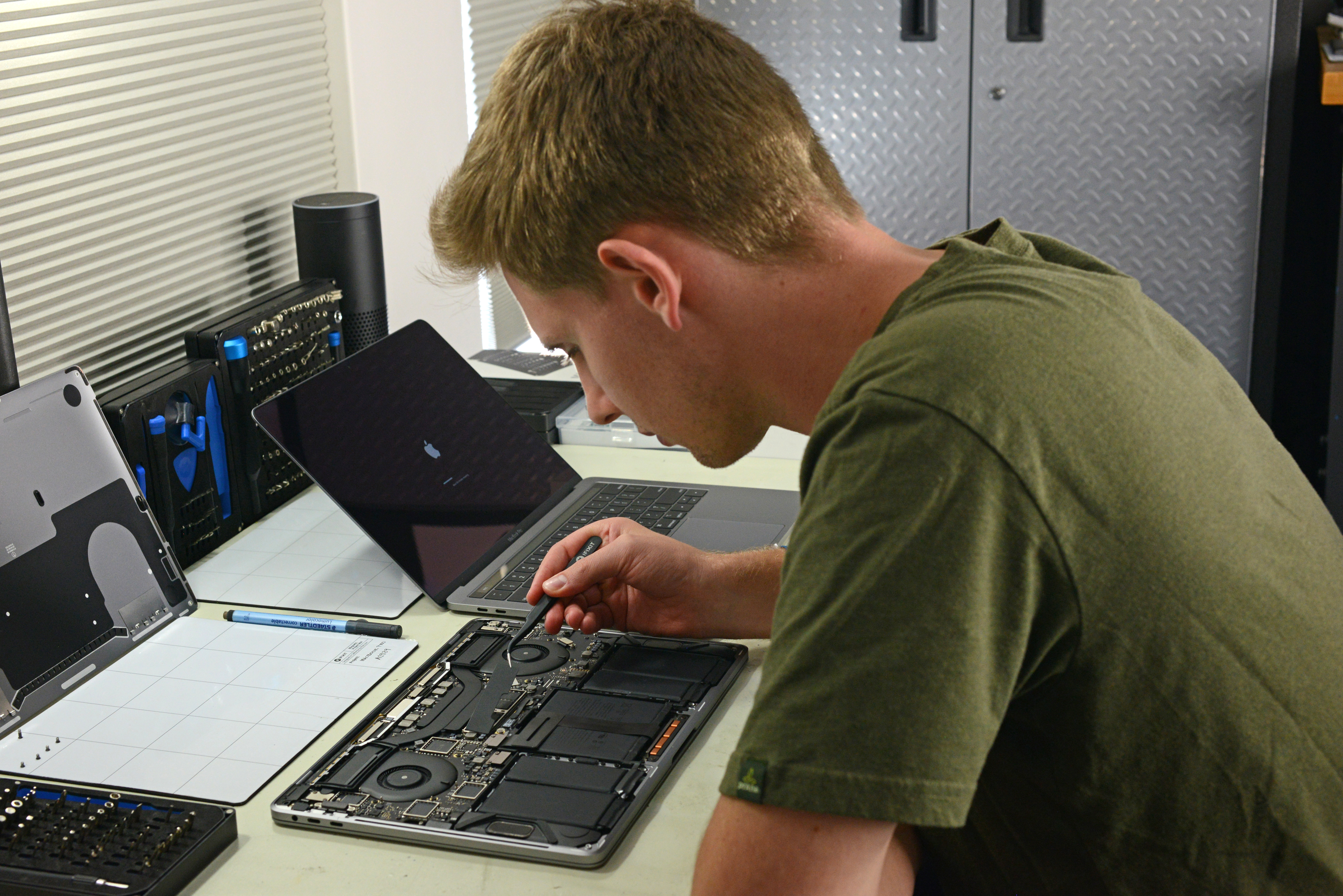iFixit: Apple has not yet activated blocking of repaired MacBooks

The same T2 chip that requires Apple Service Toolkit 2 proprietary software to activate the MacBook 2018 after repair
The other day on Habré was published the news that Apple prohibits repairing new MacBooks to both their owners and unauthorized service centers. The prohibition is not legislative (for the time being), but purely technical - after replacing, for example, the screen, the laptop needs to be processed with special software that is available only to company employees or a certified partner.
All this became known after Apple’s technical documentation fell into the hands of journalists. Now the iFixit team decided to check whether everything is as described by the media. As it turned out - no, so far Apple has not activated the feature mentioned above. Nevertheless, the company does not cost anything to realize it at any time.
According to representatives of iFixit (and the founder of the community is more active than many in favor of the “right to repair” anything, tractor or telephone), Apple’s computers have become less maintainable over time, but the craftsmen still learned how to repair them in the event of a breakdown. Now, all these skills may simply become useless: if the “prohibition of repair” function is activated, then the laptop will need to be diagnosed with proprietary software not only after a complex repair, but even after replacing the touchpad (well, though not for it).
')
As always, iFixit decided to conduct tests by disassembling another laptop. For the tests they took a brand new 2018 13 ”MacBook Pro Touch Bar. He was dismantled, removed the display and put another. To the surprise of the repair crew, the laptop worked. After that, the OS was updated to Mojave, and the boards were replaced. The result is the same - everything works without problems.
According to representatives of iFixit, all this is good, but it’s still unclear exactly when the joys of free repair will be put to an end by the company's efforts. Apple does not pay much attention to the opinion of the repairmen community or even the opinion of its own customers - here you can recall Error 53 for iPhones that have been repaired, temporary problems with the inoperability of the non-native displays of the same iPhone and a number of other incidents.

As for the current situation, if the company implements the plan, to activate the laptop, proprietary software will each time check both the motherboard and many other elements of the system, sending information about the laptop and components to the Apple cloud. This will mean, literally, that the MacBook owner is the manufacturer, not the person or company who bought the device.
According to iFixit, all this is done so that only the company has the opportunity to carry out service repairs, which is very expensive. So, for iPhone 7/8 owners with a broken Home button, replacing it at Apple or an authorized center with flashing to a non-native motherboard will cost hundreds of dollars. And this is just one button - not the weakest link of the phone.
It is worth noting that if the company enters into operation a proprietary mechanism, then even previously repaired (and workable) laptops will turn into a “brick”. And if you recall that in recent devices a very weak keyboard, which often breaks, you can only imagine what will happen after activating the function “kill non-original devices”. And the worst part is that all this is done by a company that talks a lot about its attention to and care for customers.
Not only Apple is trying to tidy up the ecosystem of repairs of their own devices in their own hands. It may seem surprising that Tesla - so modern and open - does roughly the same thing . Officially, it does not oppose the repair of its electric vehicles, but it is difficult for individuals to repair Tesla of any model due to the lack of parts and software.
The craftsman who learned how to repair electric cars, collecting one whole of several broken ones, says that he would like to open a service center, but this is impossible: “I would like to do it, but I know how it all ended for those who tried to open such centers. They closed several months after opening. And Tesla did not give them the necessary tools to work. ”
So, the regiment of opponents of the “right to repair” has arrived - now it is not only Apple, John Deere, but Tesla, as well as other companies. And iFixit is opposed to all of them with other organizations that are in favor of free repair of equipment and electronics. So far, the corporations are winning.
Source: https://habr.com/ru/post/425869/
All Articles